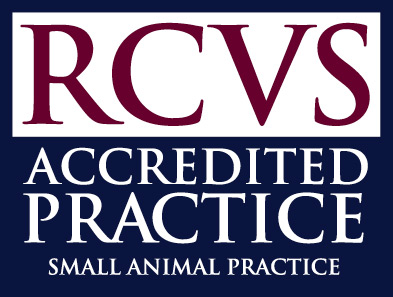Changes to the regulations for veterinary surgeons to prescribe medications
Changes to the regulations for veterinary surgeons to prescribe medications
Changes to the regulations for veterinary surgeons to prescribe medications
The Royal College of Veterinary Surgeons has issued new guidance for veterinary surgeons to follow when prescribing prescription only medicines (POMs) which came into force on 1st September 2023. Some of this guidance has eased current regulations by allowing veterinary surgeons to remotely prescribe some drugs without the need to physically see the pet in question, providing that the pet is officially “under the care” of the veterinary surgeon. This allows the utilisation of other means such as video calls to prescribe some drugs, for example, to pets that cannot travel or which can be aggressive. However, the regulations to prescribe other classes of drugs have become stricter:
The main classes of drugs where regulations are now stricter are antimicrobials (antibiotics), antivirals, antifungals, controlled drugs and antiparasitics (prescription drugs to control parasites, such as fleas, ticks and worms). The reasoning behind this is to encourage the responsible use of these drugs to reduce resistance to them and minimise any potential negative environmental impact. The guidance stipulates that a physical examination is required every time a drug in one of the classes above is prescribed.
The main impact of these guidelines is on the prescribing of antiparastics, which now require a physical consultation at which a decision has to be made regarding the specific product to be prescribed, it’s strength and now long it can be prescribed for.
FAQs:
What are the practical implications for the new guidelines for prescribing antimicrobials, antivirals and antifungals and controlled drugs?
In general, we would not normally prescribe antibiotics, antifungals antivirals or controlled drugs to a pet without seeing them, so we do not anticipate much of an impact here. The one exception would be if a medication such as an antibiotic has been prescribed, but has proved ineffective. In order to prescribe a different antibiotic, we will now be obliged to physically re-examine the pet in question.
What are the practical implications for the new guidelines for prescribing antiparasitics?
The main change is how we now have to approach the process of prescribing POMs for flea, tick and worm control (parasitics). A prescription for a specific antiparasitic will now have to be written on each pet’s clinical record which allows use of that parasitic for a defined period of time. If there is no prescription, the pet hasn’t been seen within the defined period, or we wish to change the parasitic, then we are obliged to physically re-examine the pet in question.
When will my pet need to be physically examined in order to be prescribed antiparasitics?
Please note that the RCVS have issued an extension until January 2024 before the rules on the prescribing of antiparasitics will be enforced. This means that there will not be any implications until then.
Veterinary practices have until that time to put in place protocols to adhere to the new regulations. At Hawthorn vets, we feel it is clinically justifiable to prescribe antiparasitics for a period of 24 months following the physical examination of a healthy pet. So, in practice, if you present your pet for annual health checks and vaccinations, we can then continue to prescribe antiparasitics as normal. Additionally, going forward, we will endeavor to discuss your pet’s flea and worm requirements when you come in for any consultation, so that they are then eligible for antiparasitics for a 24 month period. We hope to have physically examined and put in place prescriptions for the majority of pets by January 2024. However, after this time, there will be situations where your pet will need to physically examined to obtain prescription antiparasitics. These are as follows:
· We have seen your pet in the past 24 months, but there is nothing on the clinical record to allow us to dispense prescription antiparasitics.
· We have seen your pet within the past 24 months and have prescribed an antiparasitic, but you wish to change to a different product.
· We haven’t see your pet for more than 24 months.
Depending on the situation, there may be a fee to pay for your pet to be physically examined – we can advise you of this on an individual basis.
We appreciate that all these guidelines and regulations may well appear confusing if you are not familiar with them. We also hope that you can understand that we are obliged to adhere to the rules set by the RCVS – our professional body. If you would like more clarification, or would like to discuss anything in further detail then please get in touch and one of our team will be happy to have a chat with you.



